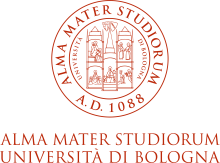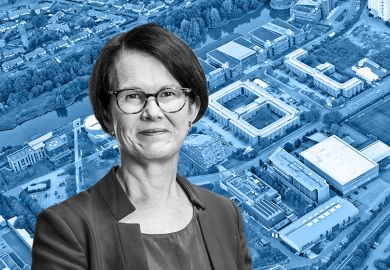Corporate models of the university represent a betrayal of a tradition stretching back over 900 years.
That was the argument of Howard Hotson, professor of early modern intellectual history at the University of Oxford, in a lecture on “Educating Homo sapiens”, delivered at the University of Brighton on 2 February as part of the David Watson Memorial Lecture Series.
Ever since the foundation of the University of Bologna in 1088, he argued, universities had always had “a dual purpose”, yet “it was almost invariably the higher purposes, benefiting the community at large, which were regarded as the primary goal of the university; and the immediate goal of educating individual students were regarded primarily as a means to this end”.
Although “the precise ways in which these dual purposes have been understood have gradually altered”, it was quite wrong to “regard universities as ‘shape shifters’, changing their fundamental purposes repeatedly in response to changing social needs”.
This background, Professor Hotson went on, “put the recent ‘radical shake-up of higher education’...in fresh perspective”.
When Gordon Brown, the former prime minister, took universities out of the Department for Education and “subordinate[d] universities to a new Department for Business, Innovation and Skills”, it was justified in terms which made clear that “business sets the objectives. Science serves them. Skills serve business and science. And universities provide skills.”
Far from being “just another adjustment which the university must make to changing circumstances”, this represented “the dramatic imposition of a new set of priorities from outside, unprecedented in the 928-year history of this institution”.
Yet “in order to align the university…with their own interests and purposes”, Professor Hotson explained, corporations had “argue[d] that their needs coincide with those of ordinary people. The key to doing so is to propagate the view that ordinary people are just like corporations: single-mindedly devoted to maximising their profit.
“So the ‘radical reform’ of the university,” he went on, “and all the other institutions of society, rests ultimately on the redefinition of the purposes of human life as coinciding with those of the corporation: Homo economicus, like the legal person of the corporation, is a purely selfish and purely materialistic entity, single-mindedly devoted to maximising its material rewards.”
He added that the “battle between the university and the corporation – or between the old conception of the university and the new one – therefore ultimately rests on competing conceptions of the good life for human beings, and therefore on competing conceptions of human nature”.
Yet despite the obvious power of corporations, Professor Hotson believed there were ways of fighting back. A good start would be “pointing out the obvious: Homo economicus is not an adequate account of human nature” - and was therefore a good basis for neither “a sound economy” nor “a sound educational system”.
He also said that if the foundations of the corporate university were “based on a demonstrably inadequate account of human nature”, the academic community was well suited to “begin dismantling it intellectually, and erecting something more adequate in its place”.
By the end of this process, Professor Hotson predicted, “Homo economicus will evolve into Homo sapiens”.
Register to continue
Why register?
- Registration is free and only takes a moment
- Once registered, you can read 3 articles a month
- Sign up for our newsletter
Subscribe
Or subscribe for unlimited access to:
- Unlimited access to news, views, insights & reviews
- Digital editions
- Digital access to THE’s university and college rankings analysis
Already registered or a current subscriber? Login






